Sundays
Film as a Subversive Art: Amos Vogel and Cinema 16
Programmed by Mojo Lorwin
Essay by Mojo Lorwin
Amos Vogel and his wife Marcia Vogel were the original avant garde film programmers. After attending Maya Deren's "Three Abandoned Films" exhibition, the couple founded Cinema 16 (1947-1963), a legendary film society whose enduring influence on the development of art film cannot be overstated. The Vogels were early champions of the emerging American experimental scene, which included Deren, Stan Brakhage, James Broughton, Shirley Clarke and Kenneth Anger, among others. They were also the first American exhibitors of a number of important foreign auteurs including Nagisa Oshima, Alain Resnais, Jacques Rivette and Roman Polanski.
In 1974 Vogel wrote Film as a Subversive Art, a "book about the subversion of existing values, institutions, mores, and taboos," which briefly profiles roughly 600 films that Vogel considered to have subversive power. Vogel was a rare type of aesthete, equally interested in material, artistic and sexual revolution, and his book has become a sort of cult bible for those interested in the agit-prop potential of film as a political tool, as well as for those in search of the strange, the shocking, the liberating and the transcendent in their myriad forms.
Vogel, who fled Nazi-occupied Austria as a teenager, was keenly aware of the awesome and dangerous power of the moving image as a medium. He was refreshingly unapologetic in his ambition to change attitudes and perspectives through his film programming rather than just giving audiences what they thought they wanted: "Film societies must remain at least one step ahead of their audiences and must not permit themselves to be pulled down to the level of the lowest common denominator...a very, easy, common, and dangerous occurrence in the mass media."
The chapter headings in Film as a Subversive Art give an indication of the scope of Vogel's project: "The Destruction of Time and Space"; "The Terrible Poetry of Nazi Cinema"; "The Attack on Puritanism: Nudity" and "The Ultimate Secret: Death," to name a few.
2015-01-11 @ 7:00 PM
A Report on the Party and the Guests
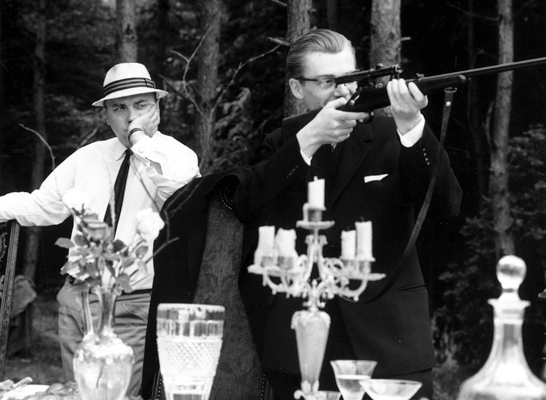
(Jan Němec, 1966) · Czech director Jan Němec's masterpiece is a deceptively absurd allegory about a group of captured wedding guests who can't tell whether they are hostages or participants in a game. "As we watch... Renoir turns into Buñuel and we discover a scathing, pessimistic statement about human conduct under totalitarianism." The film was banned upon completion in 1966, celebrated during the brief liberalization of the Prague Spring, then stifled again after the Soviet invasion.
runtime: 71 min format: 35mm
2015-01-18 @ 7:00 PM
WR: Mysteries of the Organism
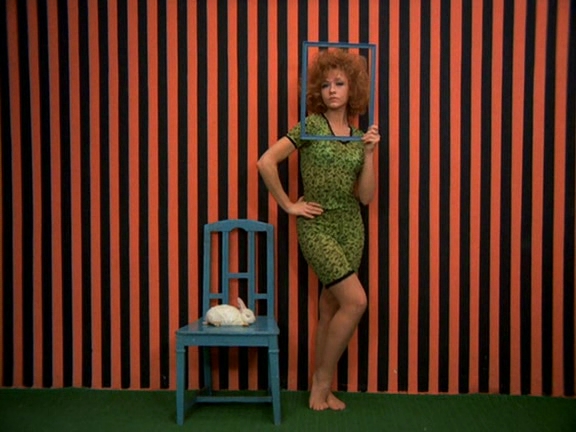
(Dušan Makavejev, 1971) · WR: Mysteries of the Organism finds Dušan Makavejev cutting between a narrative in which a Yugoslav woman seduces a Soviet ice skater, recreations of scenes from Sergei Eisenstein's films, and a number of pieces of documentary footage that are united by their strikingly explicit focus on sexuality. Using these various components, Makavejev crafts a biting satire of communist politics, with the sexuality of the everyday communist right at the center.
runtime: 84 min format: 35mm
2015-01-25 @ 7:00 PM
Zero for Conduct / Un Chien Andalou / An Eater
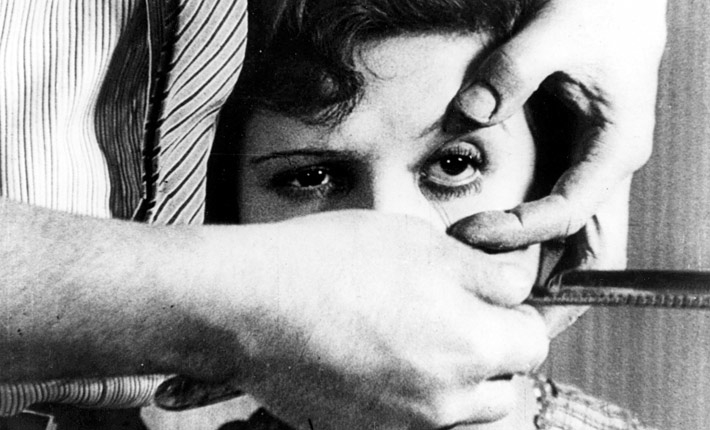
(Jean Vigo, 1933 / Luis Buñuel, 1929 / Nobuhiko Ôbayashi and Kazutomo Fujino, 1963)
For Amos Vogel, aesthetics could be just as powerfully subversive as politics. Perhaps the two were in fact one and the same? In any case, for Vogel, "The three most subversive aesthetic tendencies of our century—surrealism, expressionism, and dada—are anchored in the reality of a civilization in decline... [Surrealism's aim was] to destroy all censors and to liberate man's libidinal, anarchist, and 'marvelous' impulses from all restraint."
runtime: 88 min format: 35mm / 16mm / 16mm
2015-02-01 @ 7:00 PM
Maya Deren Shorts
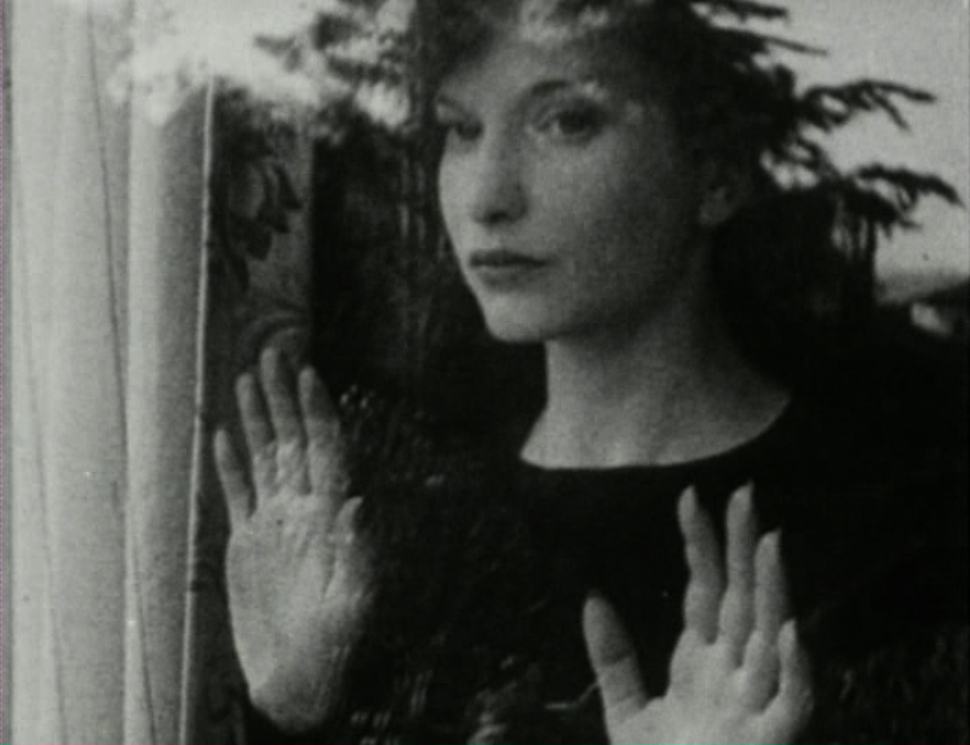
(Maya Deren, 1943, 1944, 1945, 1946, 1948) · Featuring Meshes of the Afternoon, At Land, A Study in Choreography for Camera, A Ritual in Transfigured Time, and Meditation on Violence. Amos Vogel considered Deren to be the "catalyst of the American avant-garde," responsible (along with others such as Stan Brakhage) for contributing to the "visualization of new poetic universes." Her work pioneered cinematographic and editing techniques that were decades before their time.
runtime: 60 min
format: 16mm
Meshes of the Afternoon courtesy of the Library of Congress.
2015-02-08 @ 7:00 PM
Portrait of Jason
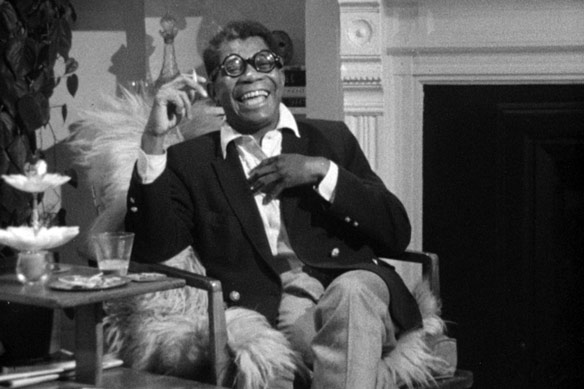
(Shirley Clarke, 1967) · Clarke's portrait of Jason Holliday, a gay black hustler living in New York in the late 1960s is remarkable, both for the screen presence of its protagonist and for the extreme intimacy of its approach. Filmed entirely over the course of one booze and marijuana fueled night, the complexities of the relationship between filmmaker and subject are revealed gradually and with an eerie subtlety. Vogel likened the experience to an "emotional striptease."
runtime: 105 min format: 35mm
2015-02-15 @ 7:00 PM
Troublemakers
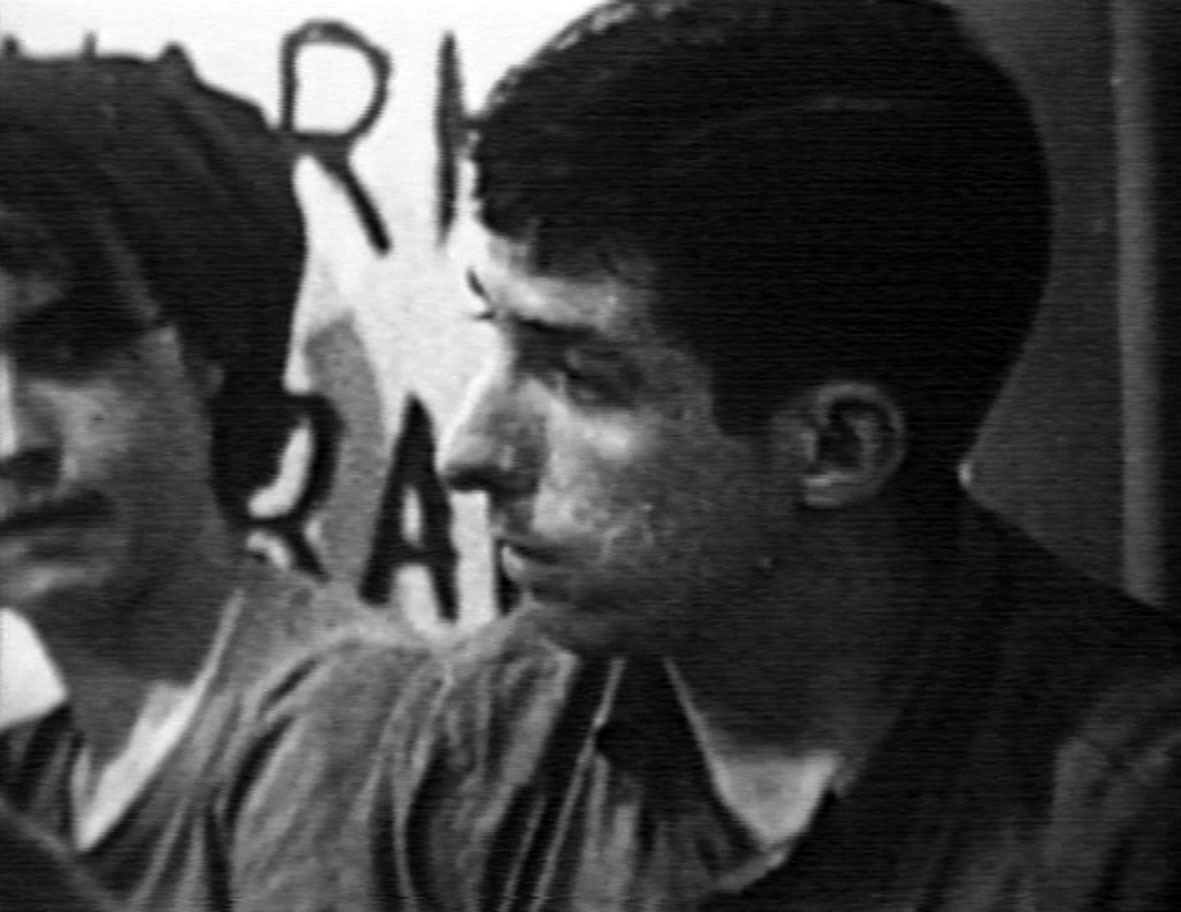
(Robert Machover & Norman Fruchter, 1966) · Machover and Fruchter's intimate documentary follows the trials and tribulations of a group of Students for a Democratic Society militants in their attempt to politicize and organize the people of Newark, New Jersey. For Vogel, Troublemakers was one of the best films of the New Left because it eschewed "both clichés and propaganda" in favor of "honesty" and "careful exploration." A must watch both for activists and political documentarians.
runtime: 54 min format: 16mm
2015-02-22 @ 7:00 PM
The Battle of Algiers

(Gillo Pontecorvo, 1966) · Pontecorvo's agit-prop masterpiece is the ultimate act of subversion: a straightforward doc-style war film that retells the then-recent Algerian War from the perspective of the "terrorist" FLN. "The cruelty of torture, the arrogance of the fascist French paratroopers, the escalating terrorism and mutual reprisals..." The obvious parallels with our present need no explanation, and yet, it is difficult to imagine such a film being made in the U.S. today.
runtime: 121 min format: 35mm
2015-03-01 @ 7:00 PM
Our Lady of the Turks
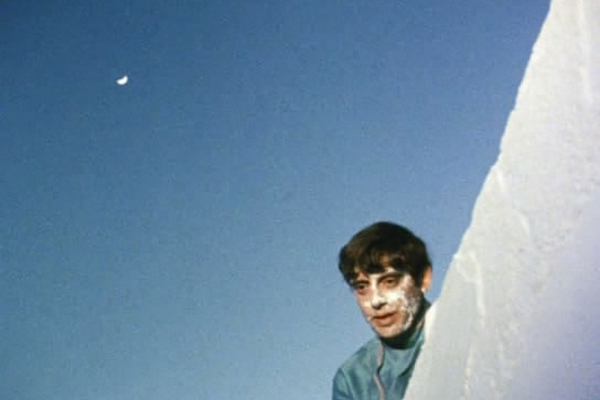
(Carmelo Bene, 1968) · Italian writer/actor/director Carmelo Bene's first feature is the story of an iconoclast rebel locked in battle with various historical and mythological religious figures. It is a furious (yet self deprecating) attack on everything Italy held holy from Catholicism to Baroque architecture to opera. Vogel writes: "Bene's films are visual, lyrical and auditory cataclysms, whose lava-like outpourings are of unequaled hallucinatory perversity."
runtime: 124 min format: 35mm
2015-03-08 @ 7:00 PM
Daisies
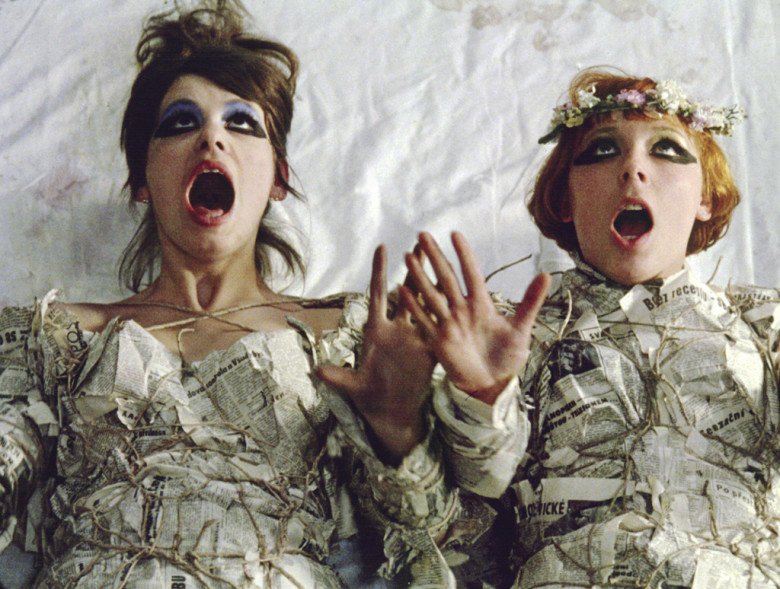
(Vera Chytilová, 1966) · Vogel wrote that Daisies was "the most sensational film of the Czech film renaissance... a philosophical statement in the guise of a grotesque farce." Chytilová's absurd anarchism manifests itself in the mischief of two brash teenage girls, Marie I and Marie II. Banned in Czechsolovakia upon its release due to its depictions and imagery of wasting food, the film cemented Chytilová's career as a visually distinct feminist auteur.
runtime: 74 min format: 35mm
2015-03-15 @ 7:15 PM
Man with a Movie Camera
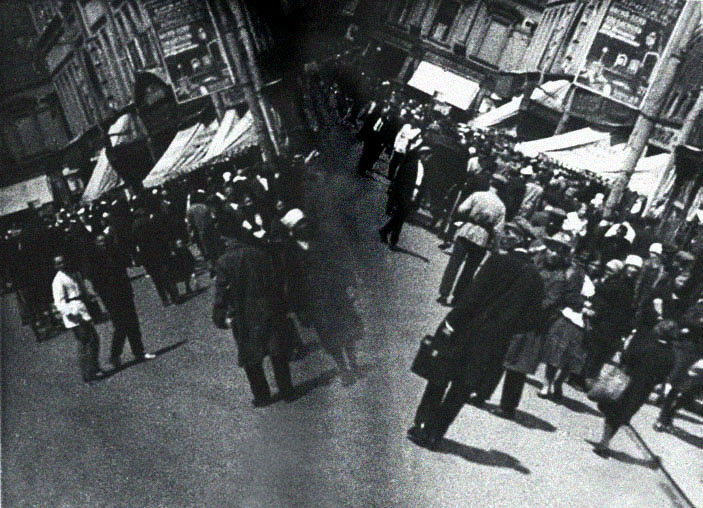
(Dziga Vertov, 1929) · "Down with bourgeois fairytale plot... long live life as it is!" wrote Vertov in 1919. Ten years later he made good on this declaration with a film that is arguably the pinnacle of all the Soviet experiments in montage. Documentary, extended music video, meta-film on the art of film, "it is a film by a man drunk with the camera, filled with the most exuberant pleasures in visuals 'as such'... a film that shows the voluptuousness of life..."
runtime: 68 min format: 35mm



